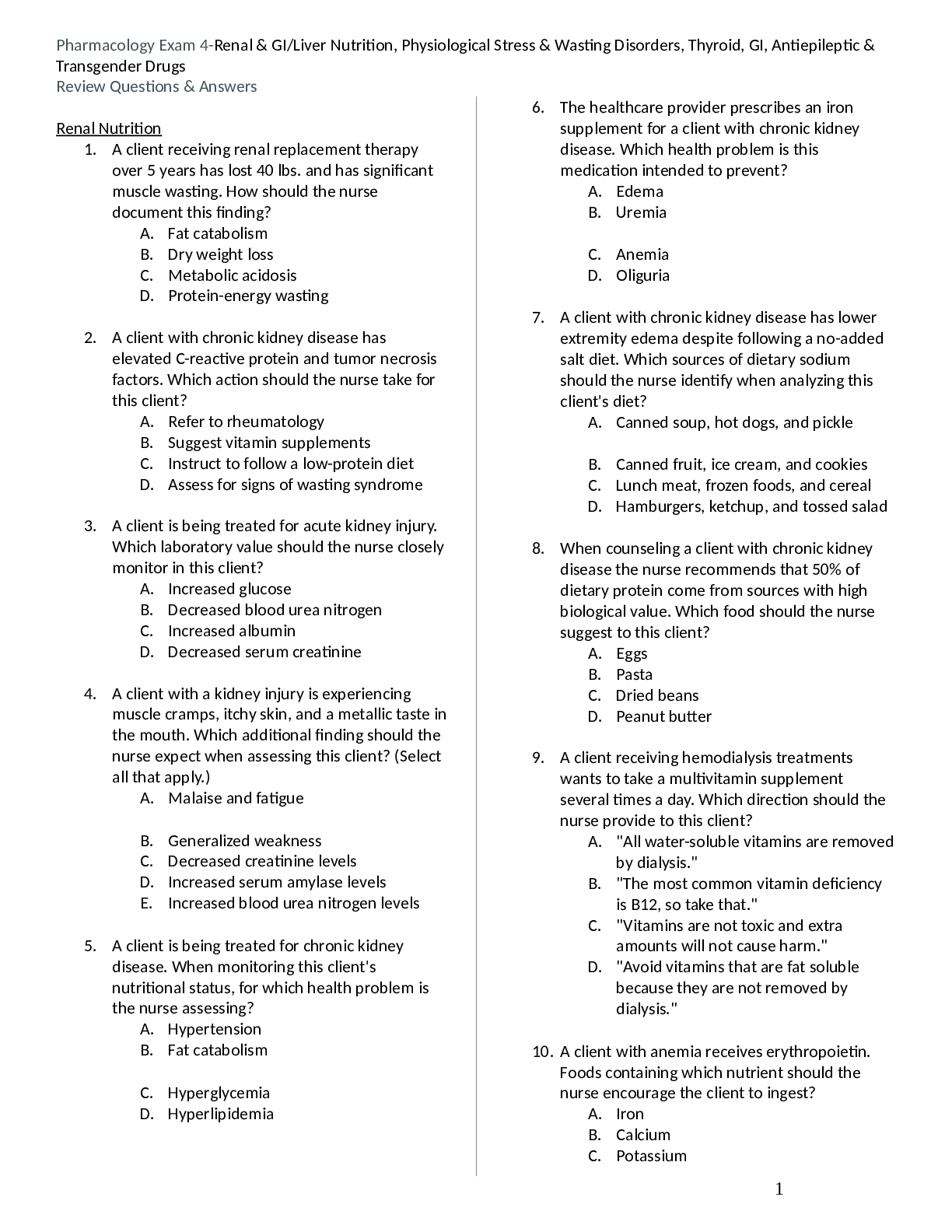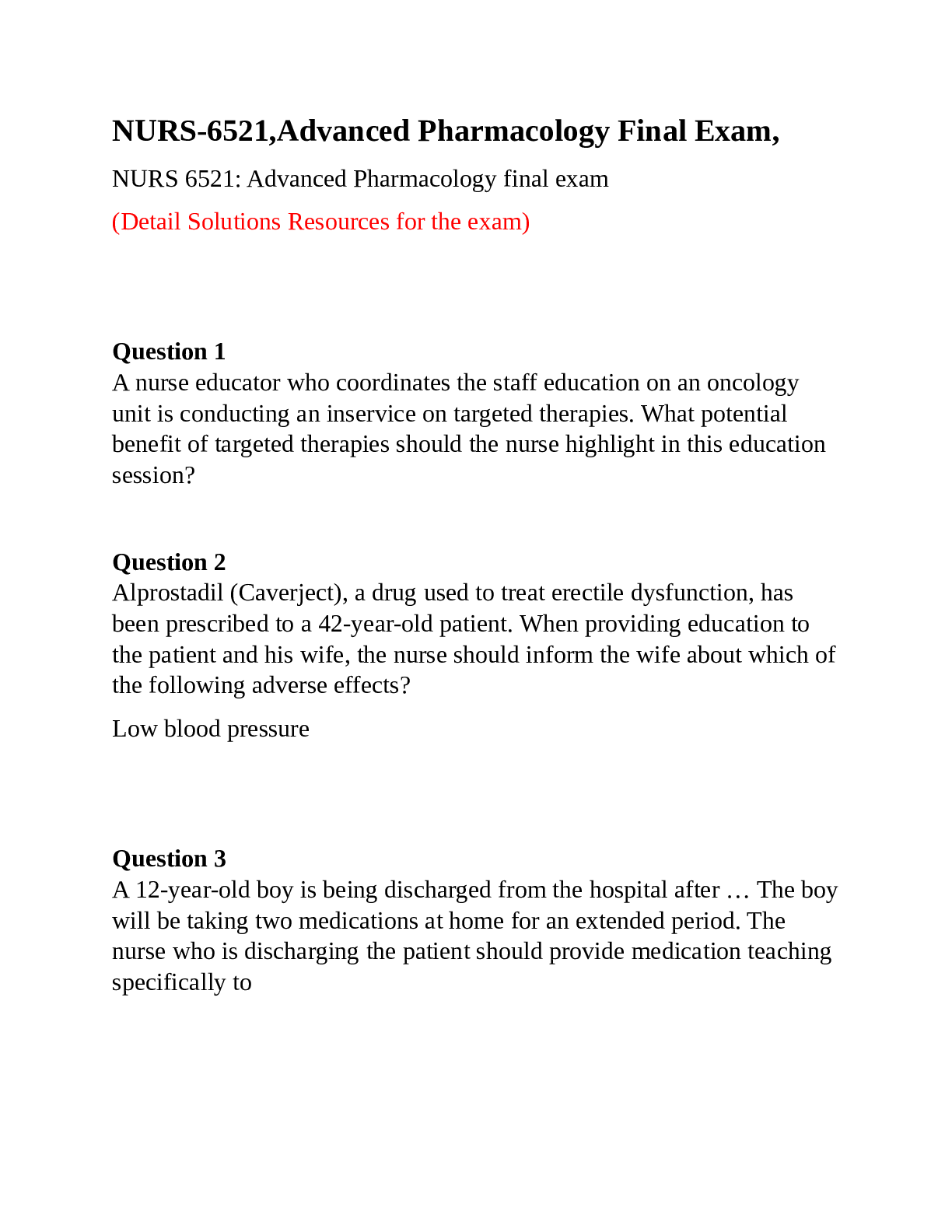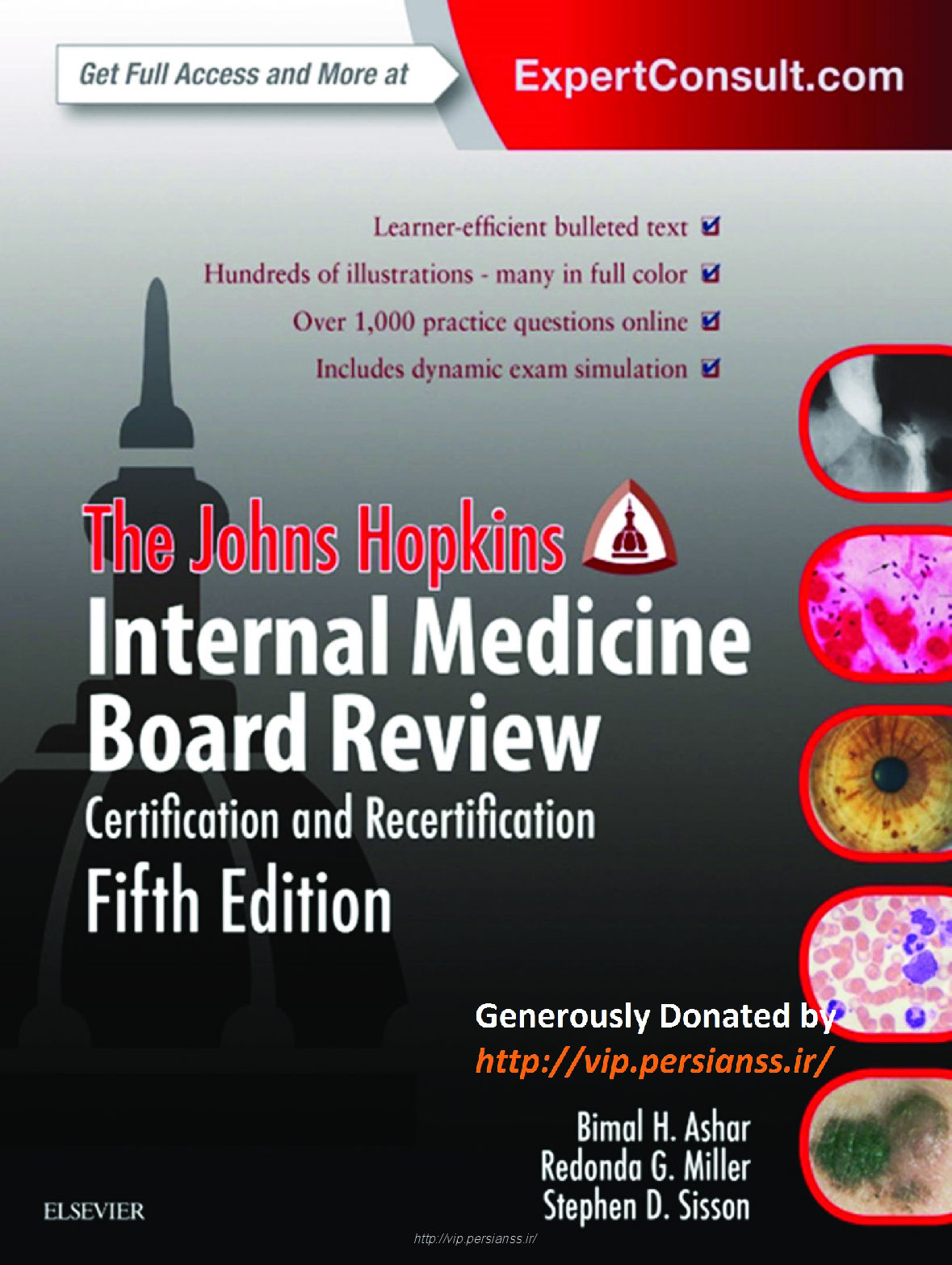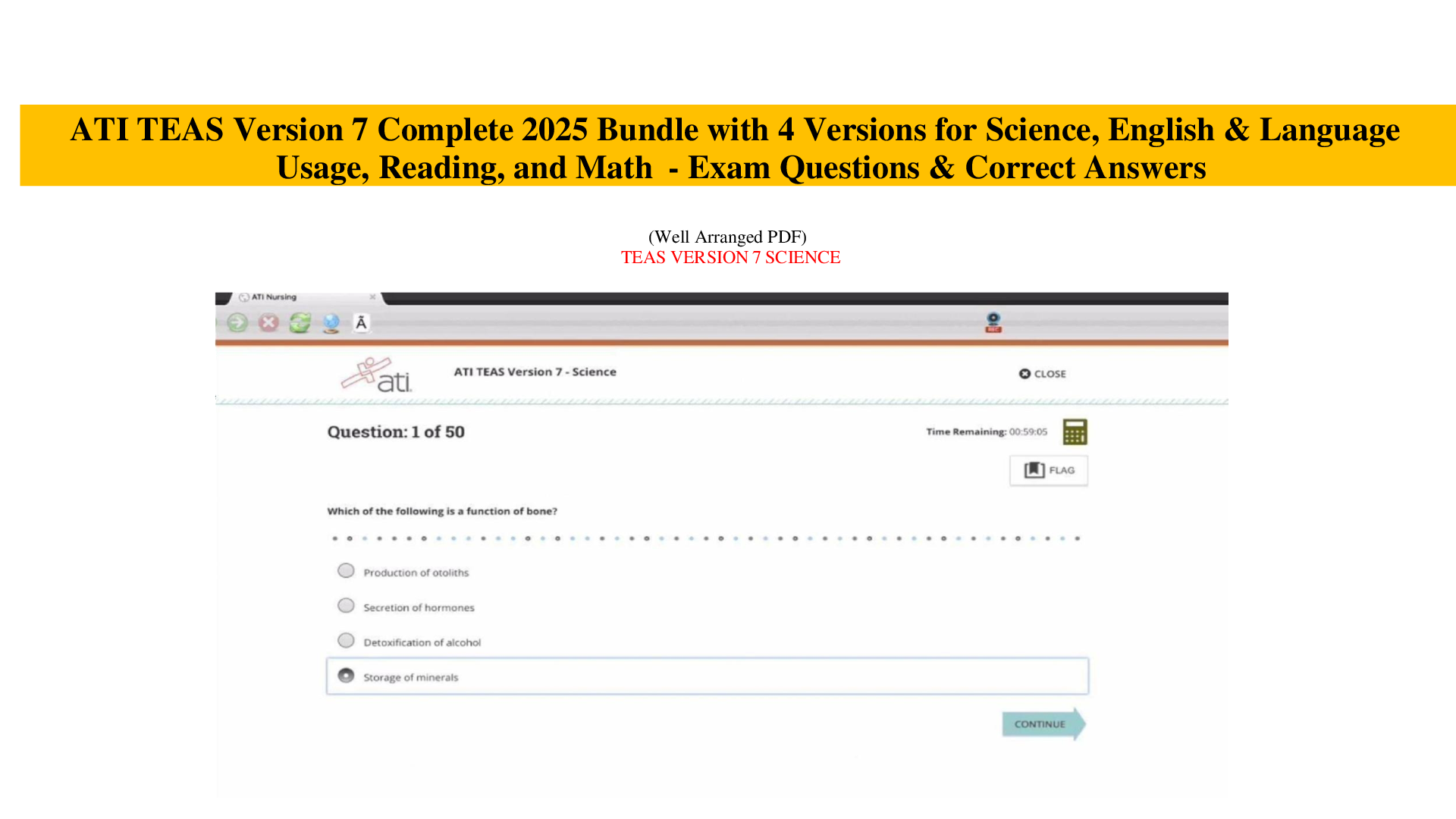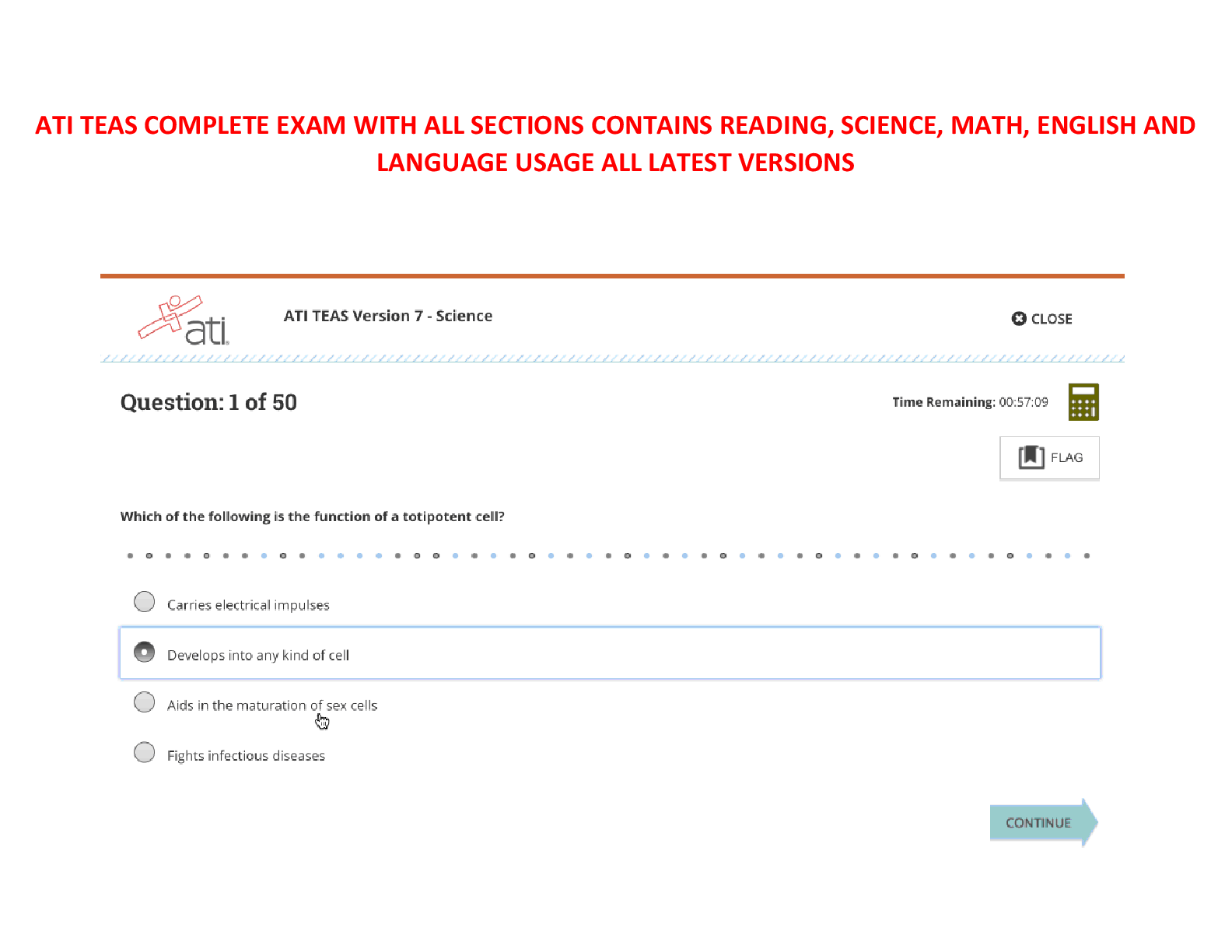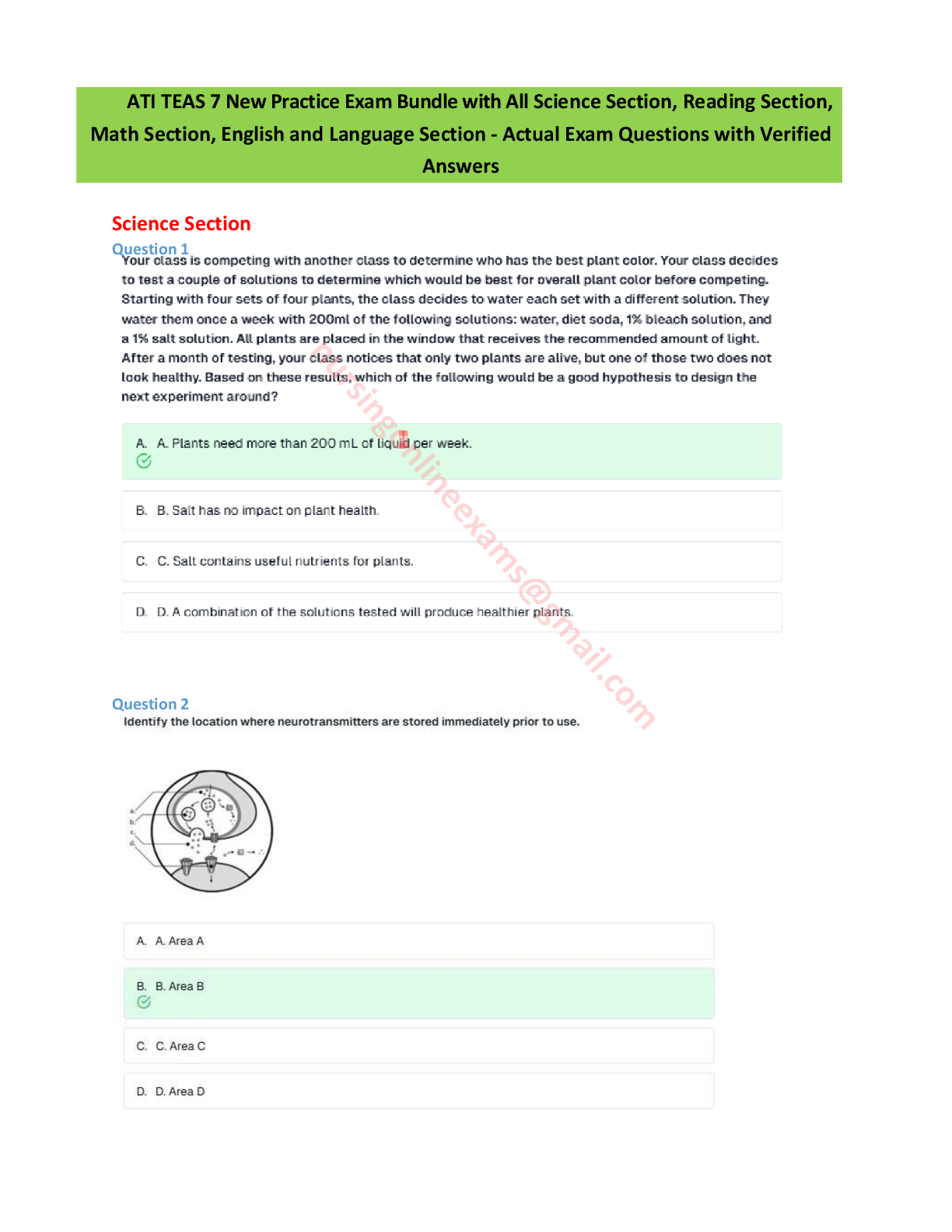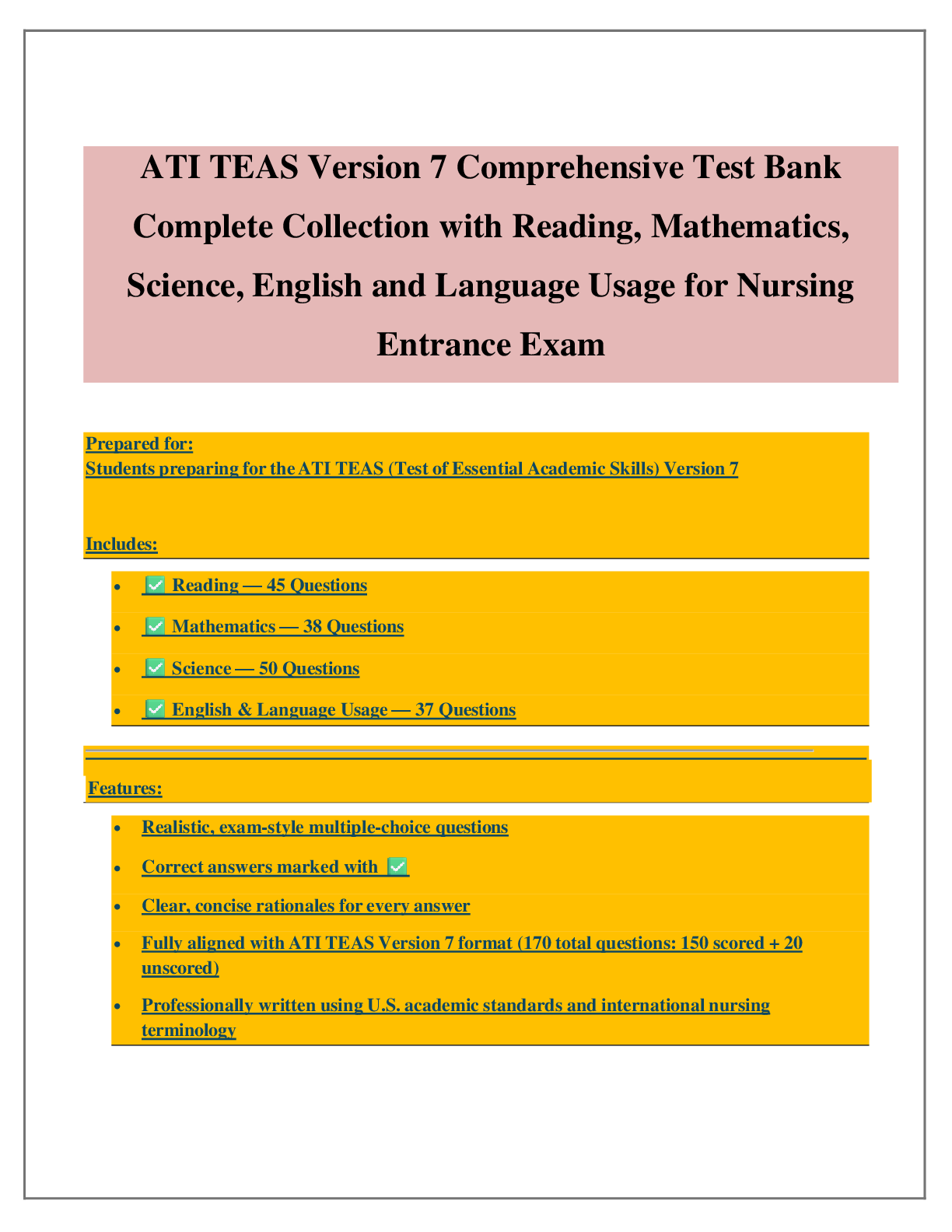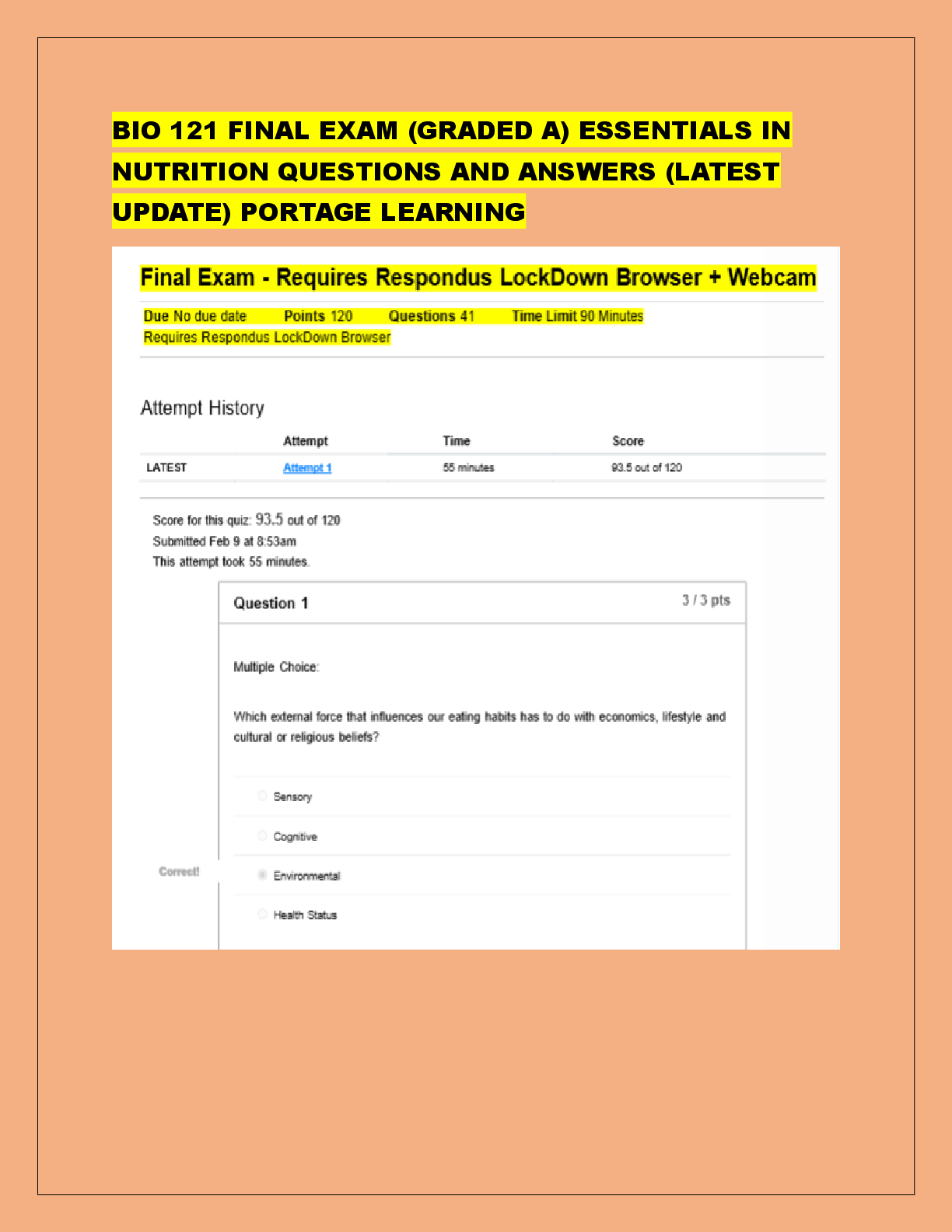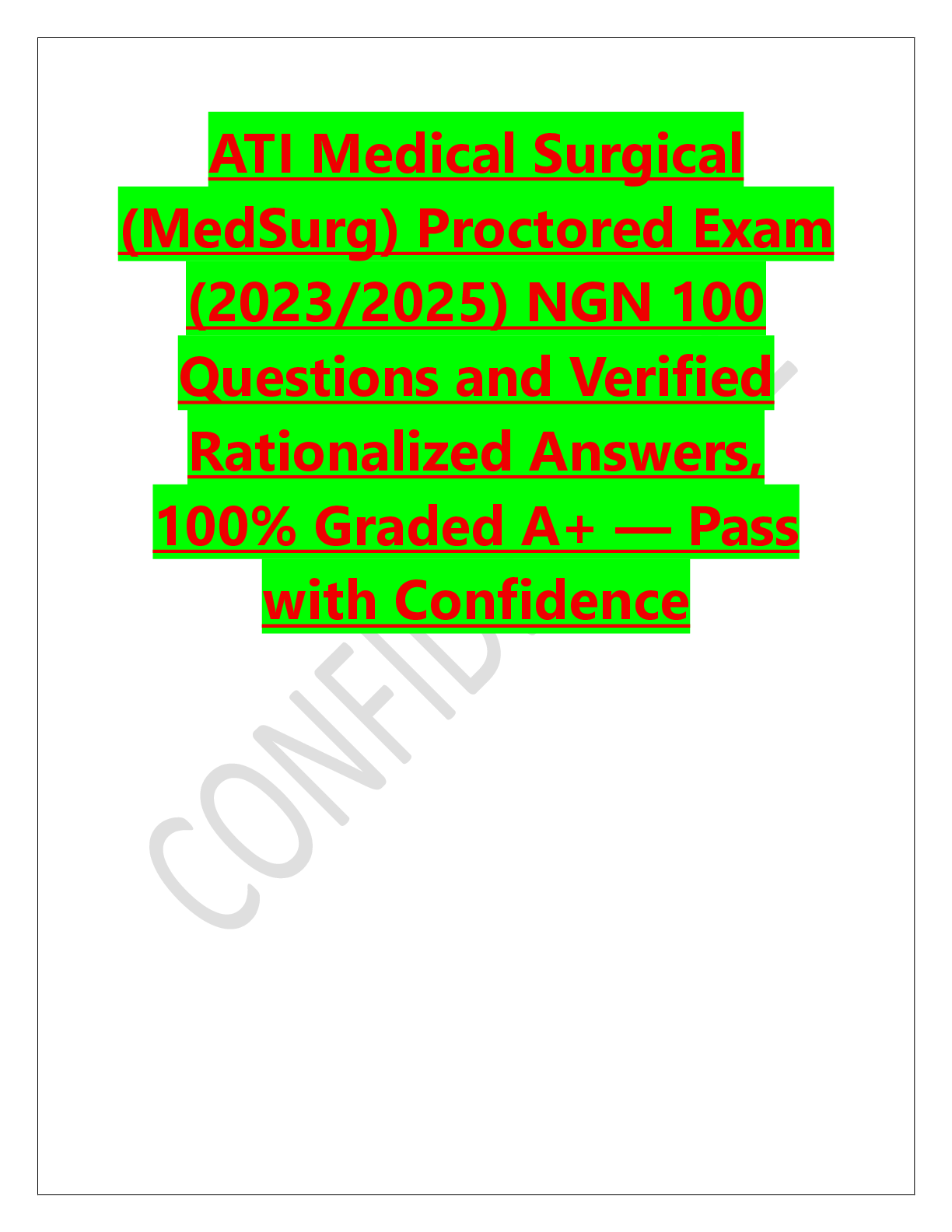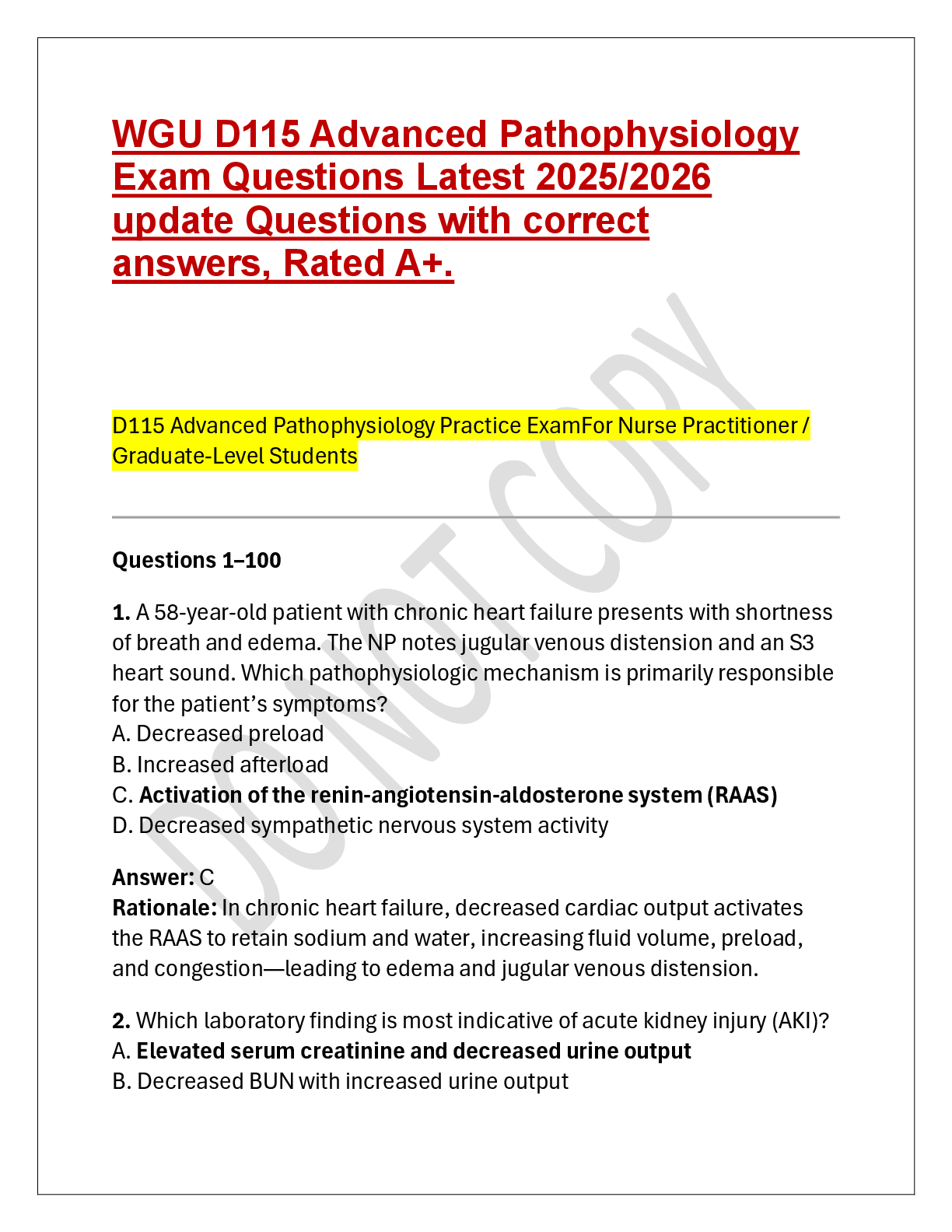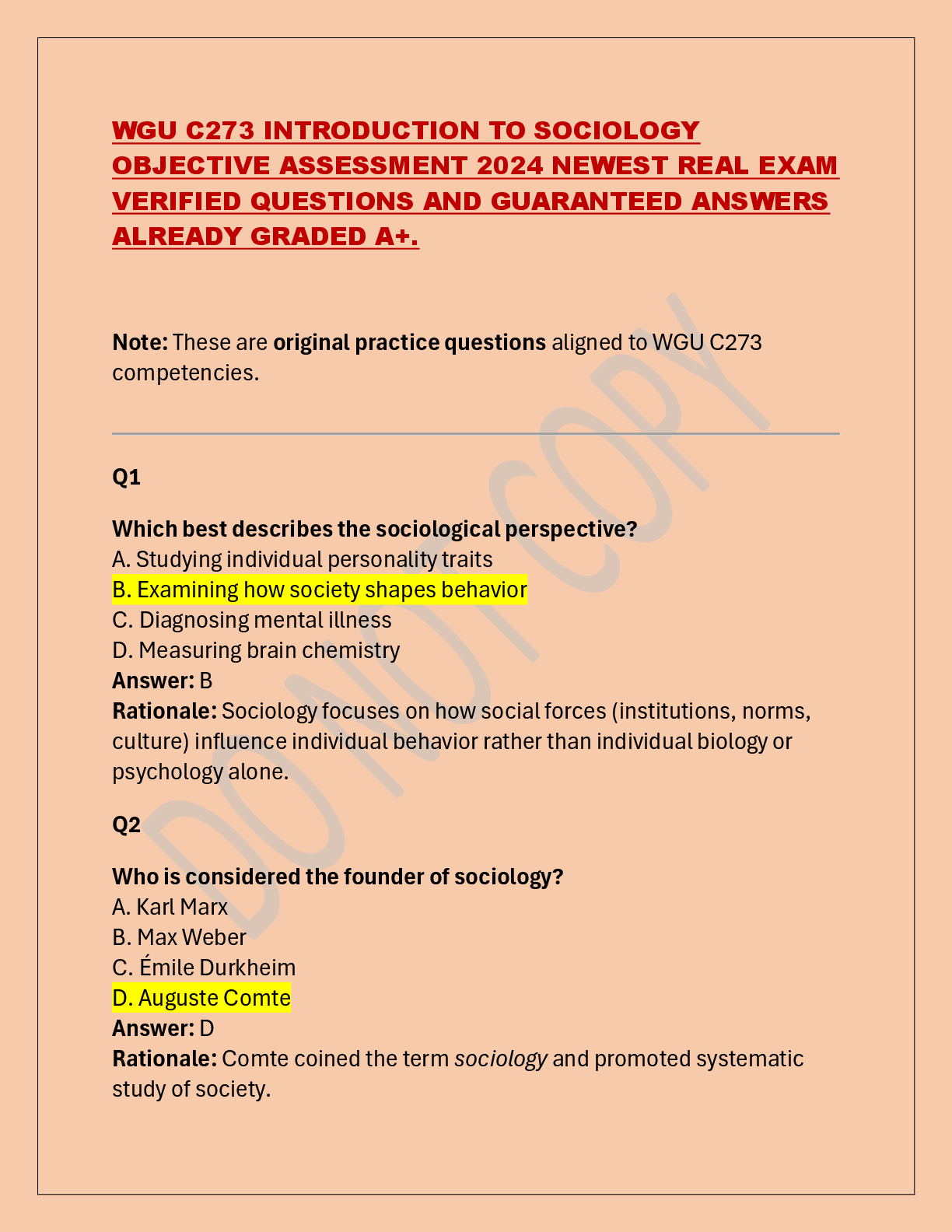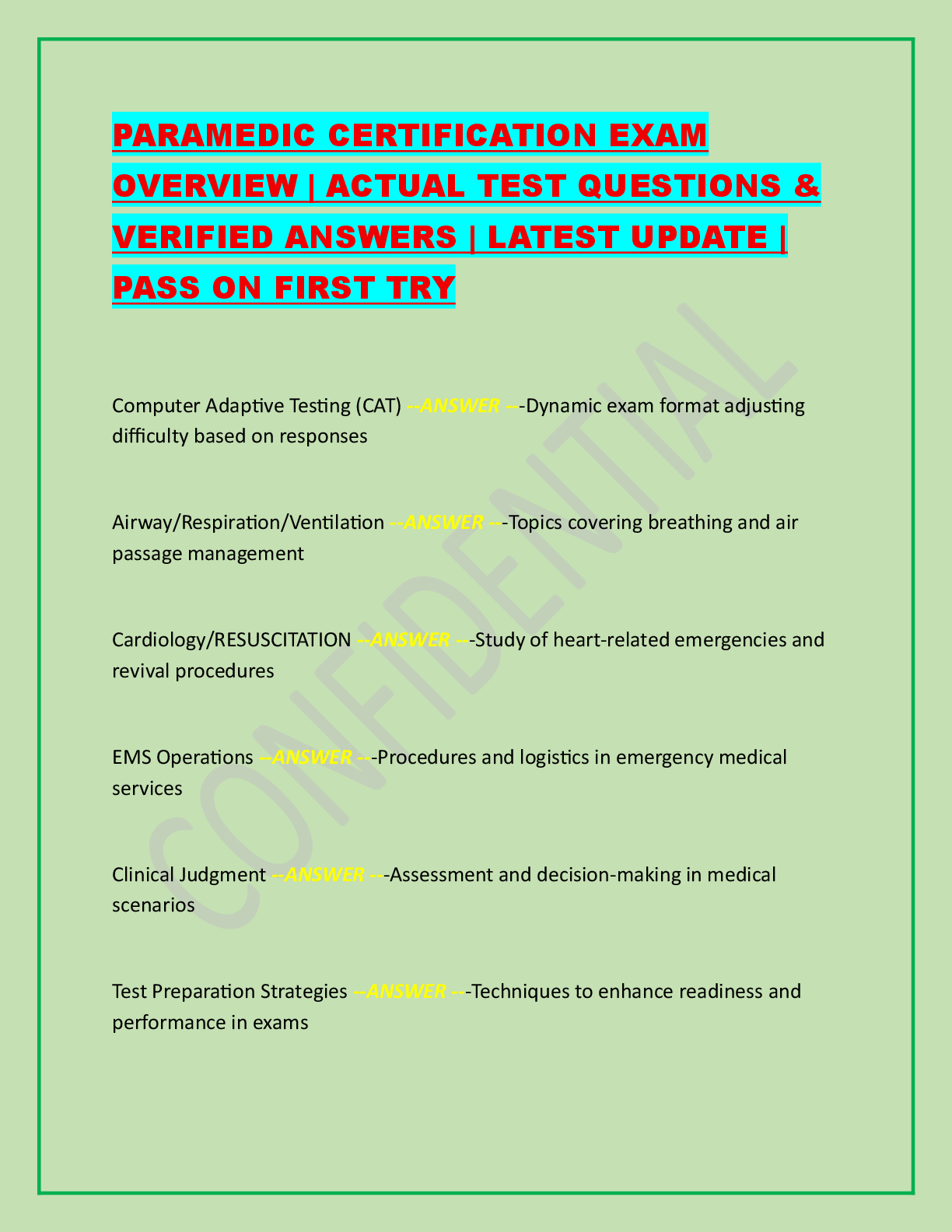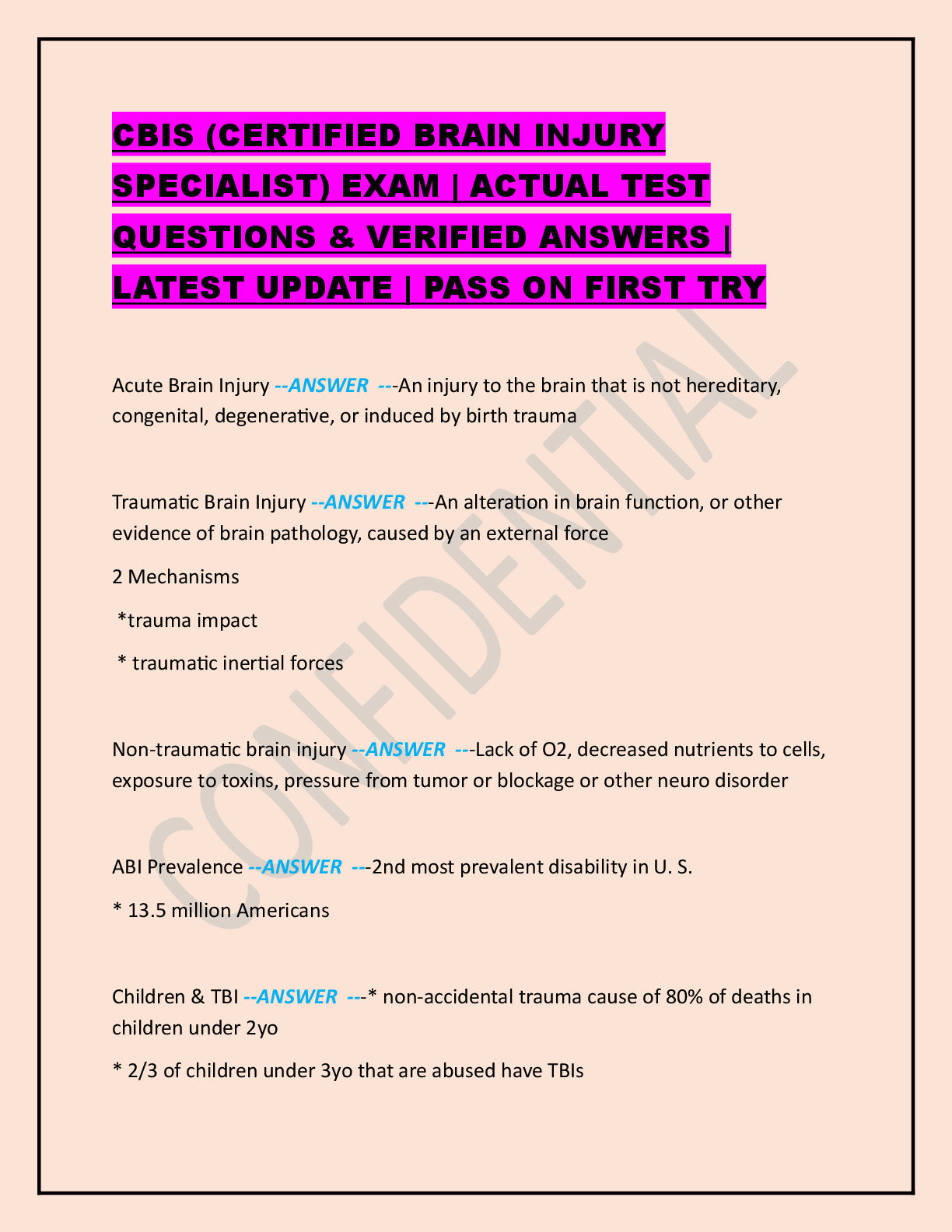Pharmacology > EXAM REVIEW > Pharmacy Questions and Answers(Exam Review) A+ guide 100% (All)
Pharmacy Questions and Answers(Exam Review) A+ guide 100%
Document Content and Description Below
Differentiate between therapeutic effect, side effect, and toxic effect. Therapeutic effect is the reason for administering a drug, to alleviate some symptom or disease process. A side effect is an ... additional fact, unwanted but usually not harmful. Drowsiness after some cold remedies is an example of a side effect. A toxic effect is a harmful effect that requires a reduction in dosage or elimination of the drug. 2. What is the difference between site of action and mechanism of action? Site of action is the location within the body where a drug exerts its therapeutic effect. It may be a body organ, tissue, or specific drug receptor site. The mechanism of action refers to how the drug produces its effects. Mechanism of action may involve inhibition of a body enzyme or chemical process or may involve the drug acting as an antagonist on a receptor to block the action of a hormone or body substance. 3. What is the relationship between ED50, LD50, and therapeutic index? The effective dose 50 (ED50) is the dose that will produce half the maximal response possible. The lethal dose 50 (LD50) is the dose that will kill half of the animals tested during a test of drug toxicity. The therapeutic index is the ratio of the ED 50 to the LD 50, which provides an estimate of the relative safety of a drug. 4. Explain the difference between a prescription drug, OTC drug, and a controlled substance. Prescription drugs require a written or phone order by a licensed physician and must be dispensed by a licensed pharmacist. OTC drugs can be sold at a variety of stores and do not require a physician or pharmacist. Controlled substances are drugs that have the potential for abuse and are scheduled and regulated by the Drug Enforcement Administration (DEA). 5. Explain the difference between idiosyncrasy and drug allergy. Idiosyncrasy is an unusual or unexpected drug response. It is usually caused by genetic differences among individuals. Drug allergy is an adverse drug reaction that occurs when an individual becomes sensitized to a drug. Antibodies produced within the body react with the drug to cause an allergic reaction 6. Write a short paragraph describing the terms agonist, antagonist, competitive antagonism, noncompetitive antagonism, and uncompetitive antagonism, reverse agonist, partial agonist Agonists stimulate the activation of receptors, while antagonists suppress the activity of receptors, antagonist have no effect without agonist. When an agonist drug and an antagonist drug bind specifically to the same site of the receptors, they are referred to as competitive antagonists. If they are both administered at the same time, they compete with each other for binding to the receptors; this is known as competitive antagonism. Noncompetitive does not bind the same site as the nature ligand and it allosteric affects the efficacy the natural ligand. Uncompetitive antagonist requires the prior activation of receptor and affects both the potency and efficacy of natural ligand. 7. What is the main disadvantage to the IV method of drug administration? Once a drug is injected, it cannot be withdrawn. Miscalculation of dosage or mistakes in drug selection may cause serious consequences. Intravenous injection also requires the services of medical personnel to administer the drug. It has the risk of infection. Pain. [Show More]
Last updated: 3 years ago
Preview 1 out of 18 pages

Buy this document to get the full access instantly
Instant Download Access after purchase
Buy NowInstant download
We Accept:

Reviews( 0 )
$11.00
Can't find what you want? Try our AI powered Search
Document information
Connected school, study & course
About the document
Uploaded On
Jun 26, 2021
Number of pages
18
Written in
All
Additional information
This document has been written for:
Uploaded
Jun 26, 2021
Downloads
0
Views
180


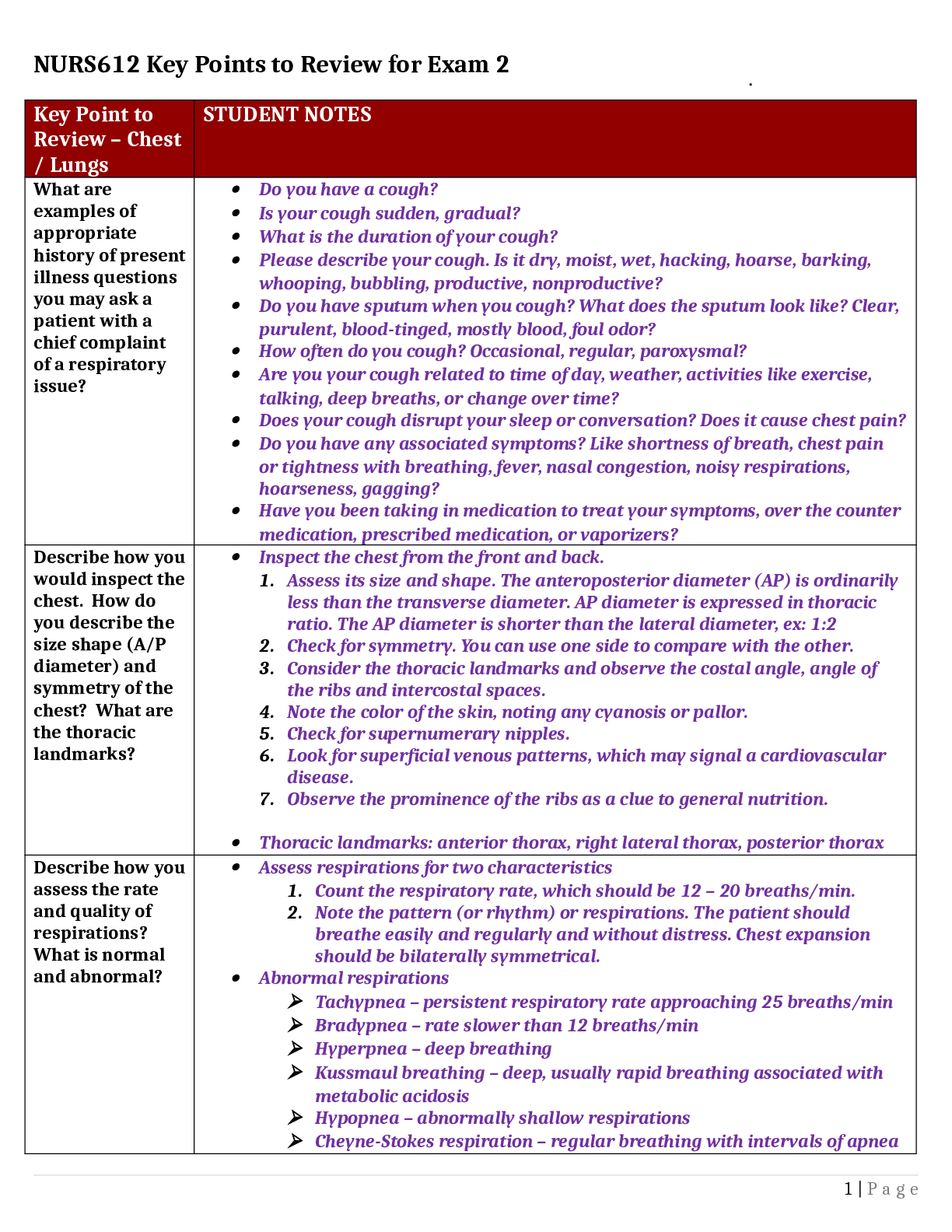
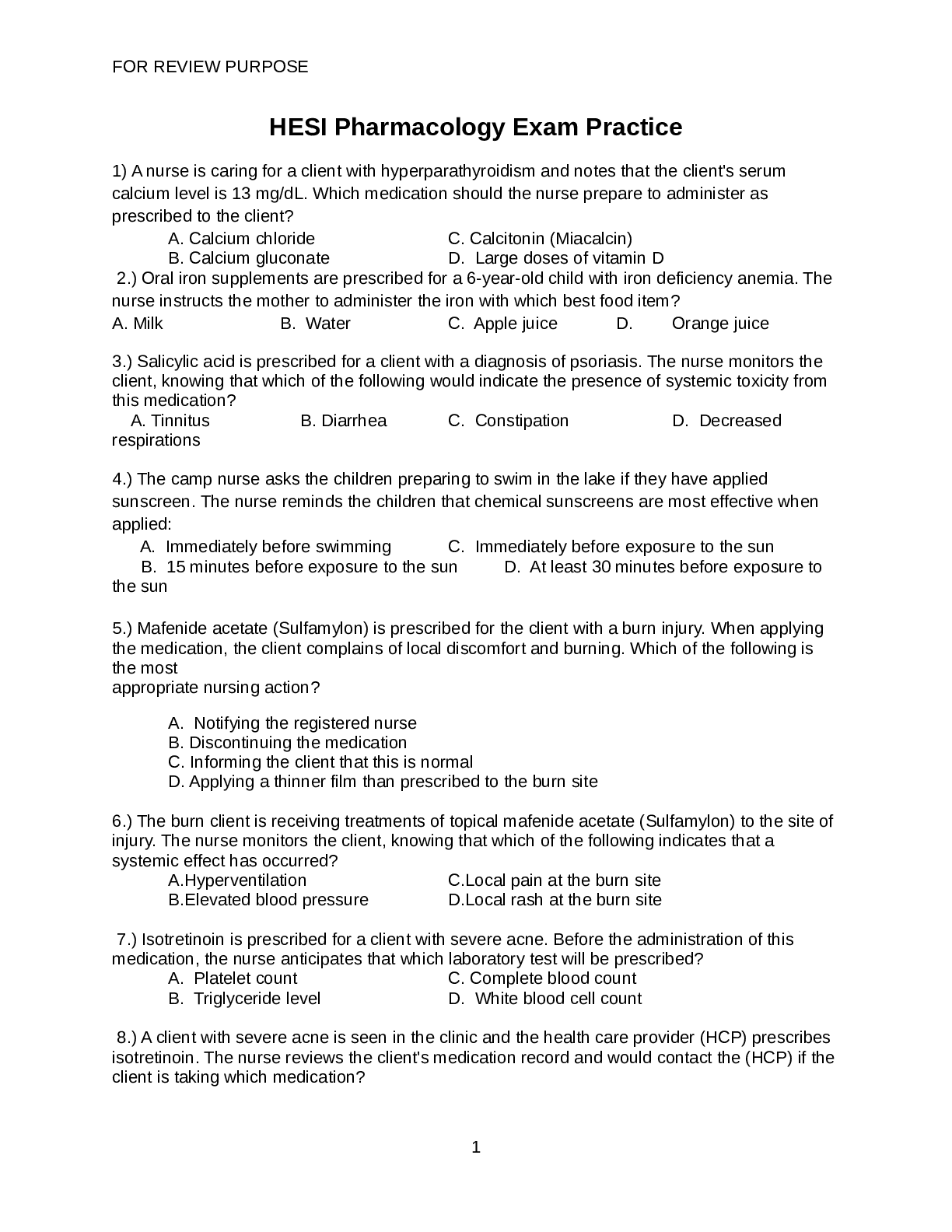
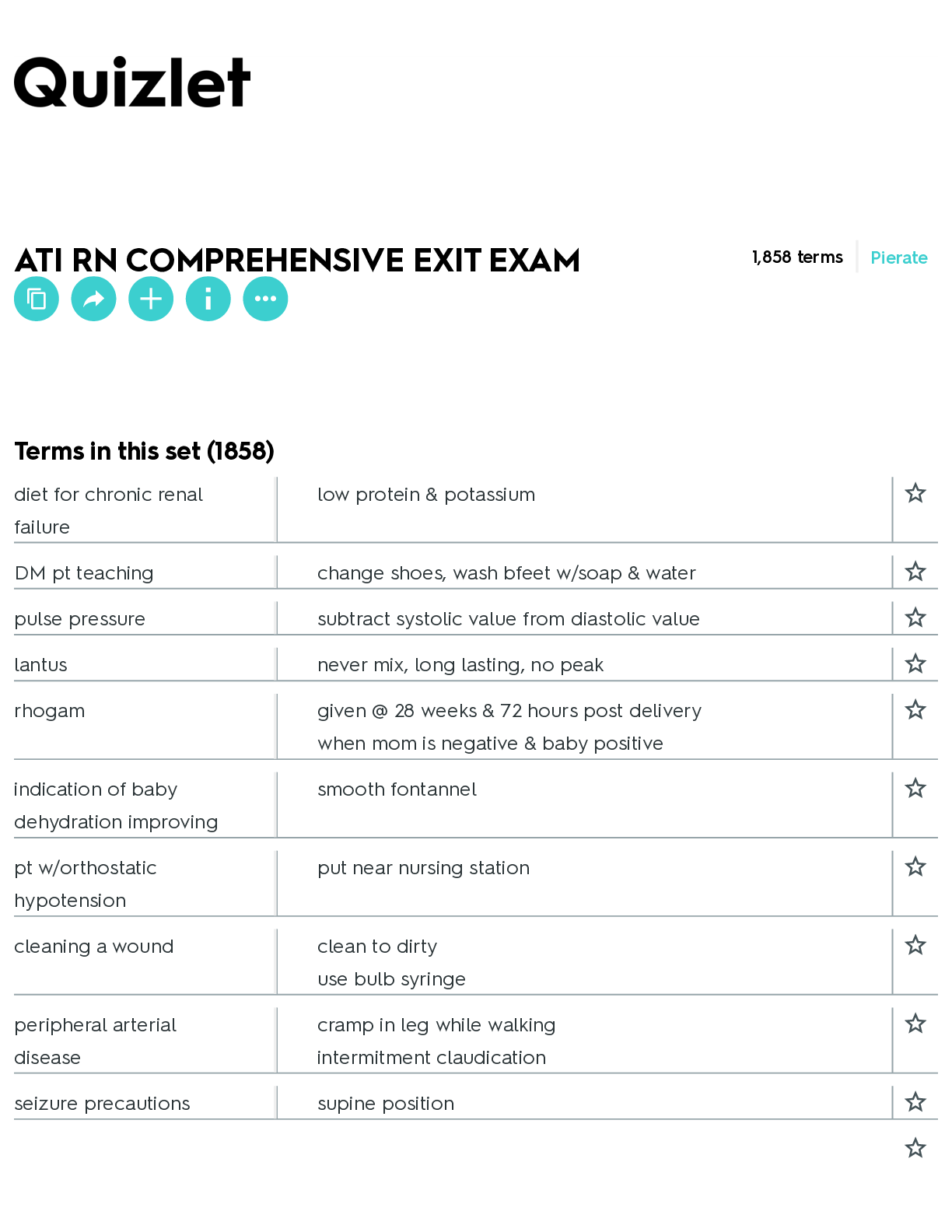
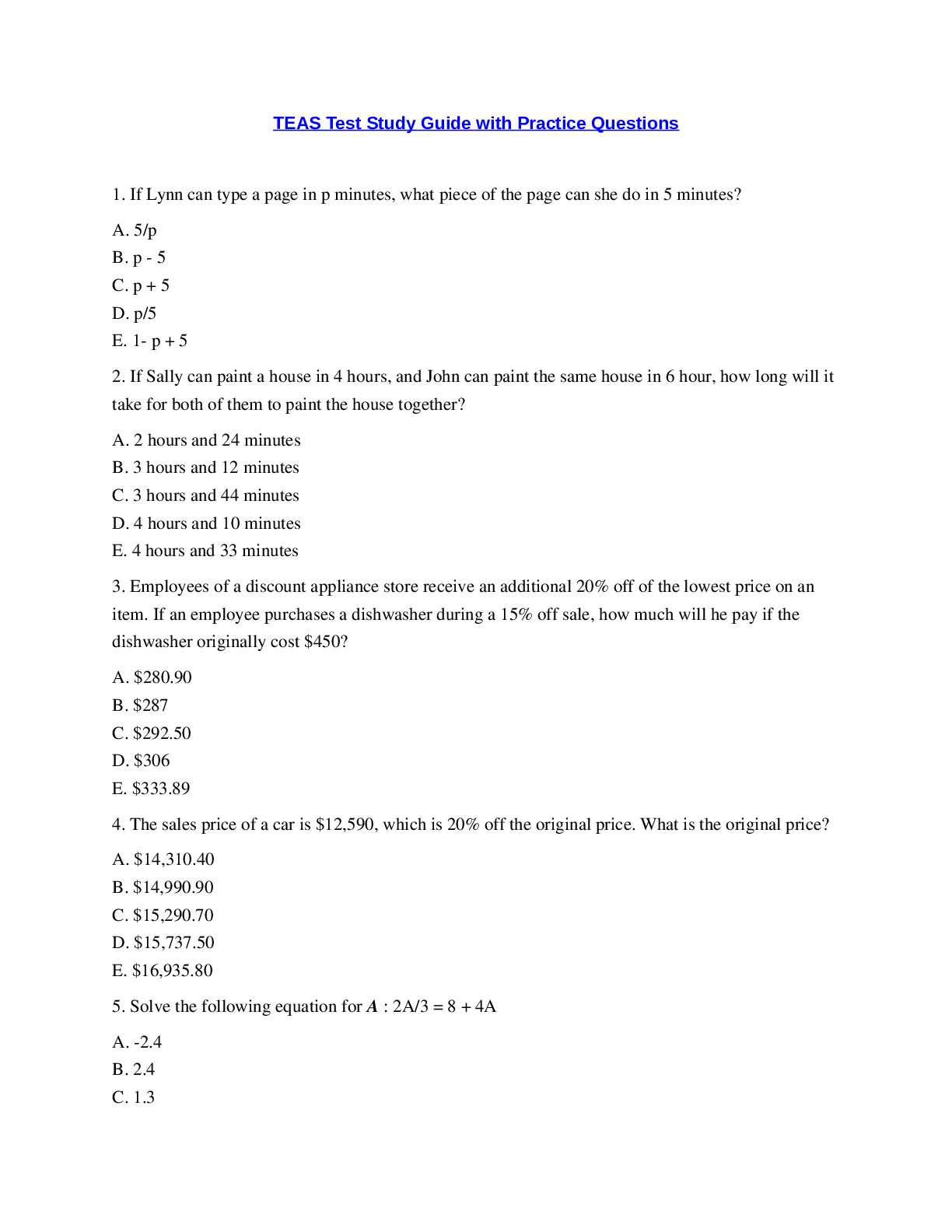
.png)

